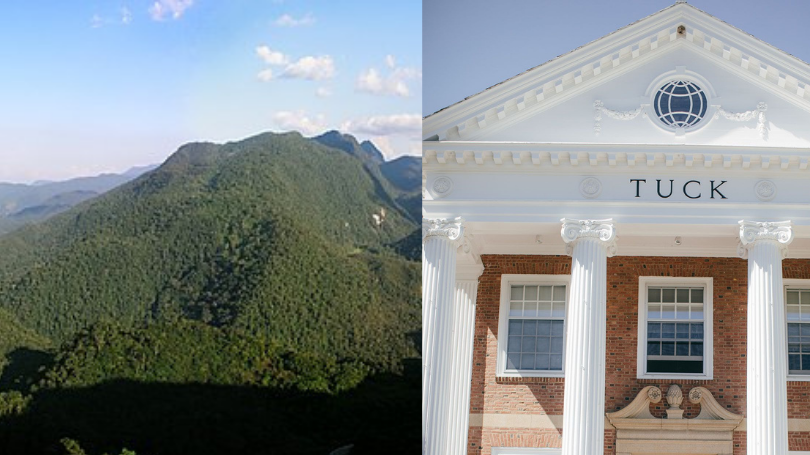
- About
- Education
- Research
- Engagement & Collaboration
- News & Events
Back to Top Nav
Back to Top Nav
Back to Top Nav
Back to Top Nav
The Irving Institute for Energy and Society recently announced a $5,000 grant to support the newly established Tuck Carbon Offsetting Program's (TCOP) inaugural offset of 1,137 tons of carbon. Led by Tuck's Revers Center for Energy, this student-run program is guided by Revers Center for Energy MBA Fellows alongside student leadership from Tuck Sustains. Partnering with market leader, Cool Effect, Tuck Class of 2021 students Mark Orloff and Colin Cinder applied for Irving Institute funding. Not only does the funding help get the program off the ground, it also demonstrates its effectiveness both in terms of enhancing the sustainability of campus operations while also engaging the support of the broader Dartmouth community.
While TCOP is a pilot project initiated by Tuck, the program's ultimate aim is to reduce the carbon footprint of the entire Dartmouth campus. With matching funds by the Revers Center for Energy at Tuck, the students utilized their $10,000 seed funding to invest in offsetting 10% of the business school's emissions in the project's first year. Mark and Colin selected Cool Effect's Peru – Cup of the Amazon project, which focuses on the reduction of illegal logging and deforestation in the Pervuian Amazon by enabling sustainable livelihoods for the local population through coffee growing. This project addresses the TCOP program criteria of a significant carbon and community impact, while also enabling student engagement and learning.
Every year, Dartmouth runs a pre-matriculation trip to Peru that fosters early connections between students. Speaking from experience, this trip has a profound impact on Tuck students – that is where Mark and Colin met. Peru – Cup of the Amazon offers a long term opportunity to partner with local coffee suppliers and the potential of a site visits. Additionally, it will foster deeper connections and good will with a country that has been integral to so many students' experience. Tuck also partners annually with companies in Peru for one-to-two student projects for Tuck's first year project requirement.
The students noted that while this initial 10% total offset is small, it "will be instrumental in setting an urgency standard for the program." They add that, "[t]his is an integral first step to a future of net carbon neutrality for Tuck." In addition to helping lessen the impact of Dartmouth's carbon emissions, TCOP is also designed to function as a hands-on learning opportunity for students. As the program grows, the student project leaders explain, "TCOP will allow Tuck, and Dartmouth more broadly to catch up with peer institutions in sustainability efforts. Every day, our operations continue to emit carbon and contribute to climate change, and it is the Dartmouth community's moral obligation to offset this damage. As Tuck strives to create wise, decisive leaders to better the world through business, we need to educate our students on preserving the environment that we call home."
April Salas, Executive Director, Revers Center for Energy at Tuck, contributed substantially to this article.